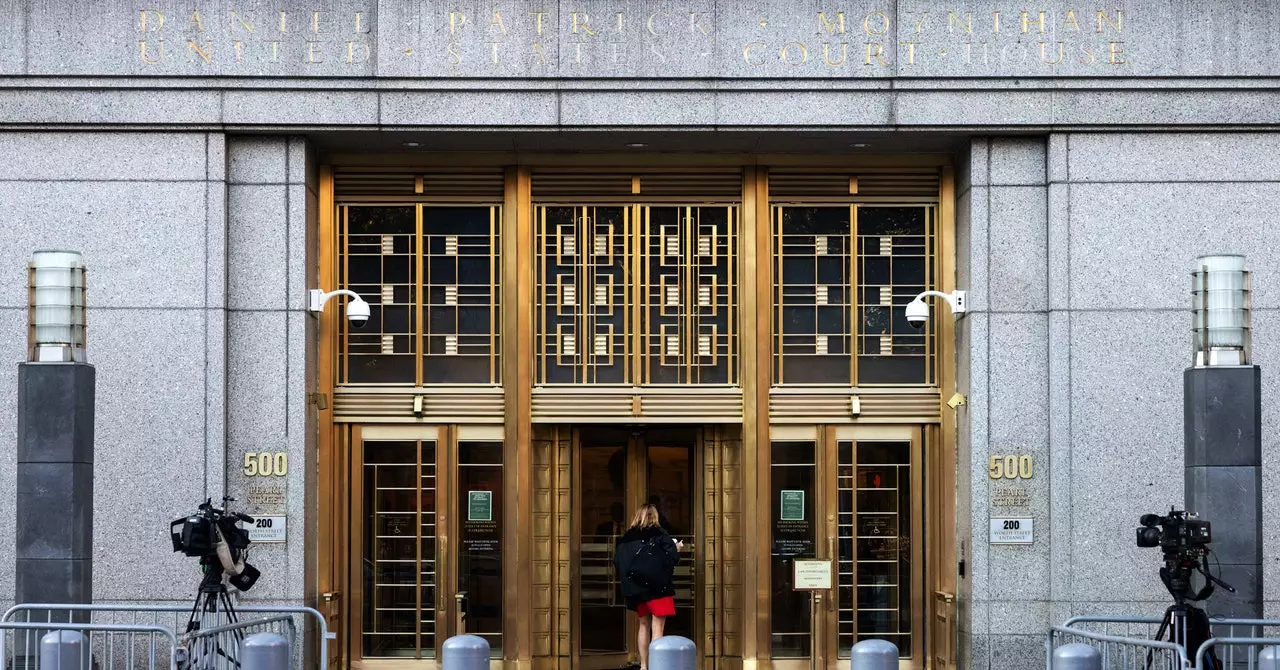In a significant legal development, a US judge has granted approval for the refund of billions of dollars to former customers of the defunct cryptocurrency exchange, FTX. Presiding over the matter in Wilmington, Delaware, Judge John Dorsey remarked on the resolution process, stating that it serves as a “model case” for navigating complex Chapter 11 proceedings. The court’s decision came during a hearing where the reorganization plan laid out by FTX received overwhelming support from creditors. This case highlights not only a landmark legal achievement but also offers insight into the precarious world of cryptocurrency and bankruptcy law.
FTX’s bankruptcy, filed in November 2022, was a sobering event in the cryptocurrency landscape, which had witnessed rapid growth and speculative investments. The exchange collapsed after it could no longer honor customer withdrawals, revealing that vast sums of customer deposits were unaccounted for. Investigations disclosed that these funds had ostensibly been diverted into a sister company and used for high-risk trading, personal loans, and other questionable expenditures. The subsequent trial of FTX’s founder, Sam Bankman-Fried, saw him convicted on multiple charges of fraud, leading to a hefty 25-year prison sentence. The arrest and prosecution of Bankman-Fried and his accomplices, including Caroline Ellison, only intensified the scrutiny on similar exchanges and the lack of regulatory oversight in the cryptocurrency industry.
The proposed bankruptcy plan, first introduced in May, outlined a unique approach aimed at fully compensating affected customers, including interest. Such an outcome is notable in bankruptcy cases, where creditors often receive only a fraction of their claims. “Anything over 100 cents on the dollar is close to miraculous,” remarked bankruptcy specialist Yesha Yadav, emphasizing the rarity of this situation.
The FTX administrators managed to recover substantial amounts by liquidating various assets, including investments from FTX Ventures and Alameda Research. Furthermore, a subsequent increase in cryptocurrency values since the bankruptcy filing has further augmented the pool of funds available for reimbursement. This strategy represented a significant deviation from conventional bankruptcy proceedings, where unsecured creditors typically walk away with minimal restitution.
Despite the favorable terms of the recovery plan, discontent simmered among certain creditor groups over how their claims had been appraised. Typically, claims can undergo “dollarization,” wherein the value of crypto assets on the day of bankruptcy is used for calculating the recovery. With FTX’s collapse occurring during a downturn in the crypto market, many creditors felt short-changed, especially as asset valuations have soared back to record levels since then. This discrepancy brought forth a contentious issue regarding the valuation processes employed in crypto bankruptcies and the implications for customer refunds.
Many creditors argue that their claims should reflect the current market value of their crypto holdings rather than the prices at the time of FTX’s bankruptcy. Yadav noted that while dollarization is permissible within bankruptcy regulations, it presents an unfair landscape when viewed against the subsequent recovery of the crypto market. Therefore, many individuals believe the description of their recovery as being over 100% misleading.
The FTX bankruptcy saga is a potent reminder of the volatility inherent in the cryptocurrency market and the potential consequences of lack of regulation. The swift rise and fall of FTX underscore the importance of establishing clear, robust financial oversight mechanisms. As the judicial system attempts to untangle the complexities of this case, it may pave the way for future regulatory frameworks.
The ongoing discourse surrounding cryptocurrency, bankruptcy, and customer rights reflects broader societal concerns regarding accountability in digital finance. As more individuals invest in cryptocurrency, similar exchanges will need to demonstrate transparency and reliability, lest they find themselves facing a reckoning akin to that of FTX.
The FTX case has not only provided a unique opportunity for creditor recovery but also serves as a catalyst for discussions about the future of cryptocurrency regulation. The case exemplifies both the potential for recovery in unprecedented situations and the challenges that come with effectively valuing and compensating claims in a dynamic financial landscape.


Leave a Reply